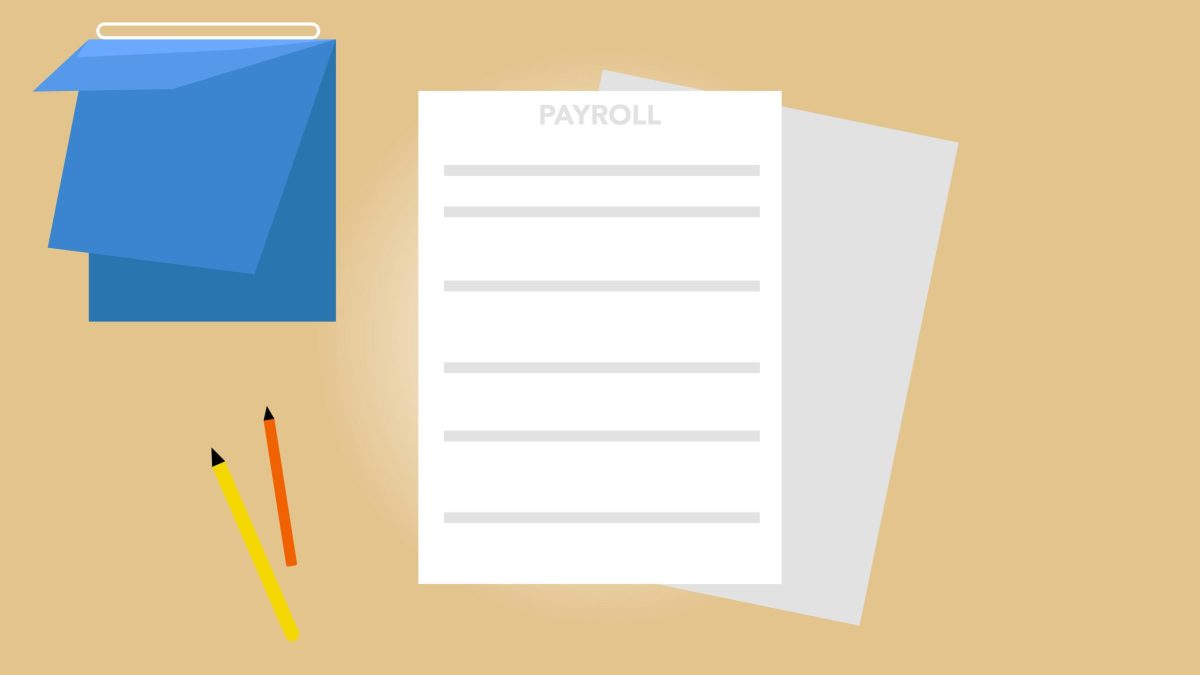Unlocking Financial Well-being in Australia

Overview of the Current Economic Climate
Australia’s economic landscape is dynamic, marked by resilience and growth. Yet, amidst this prosperity, the importance of individual financial literacy and planning cannot be overstated. Understanding the economic climate is the first step towards securing personal financial well-being.
The Importance of Financial Literacy and Planning
Financial literacy empowers Australians to make informed decisions. It’s the cornerstone of personal finance management, enabling individuals to navigate through life’s financial challenges with confidence. Planning, on the other hand, is about setting financial goals and laying down a roadmap to achieve them. Together, they form the bedrock of financial security.
Living Below Your Means: A Path to Wealth Creation
Living below your means is not about frugality; it’s about making strategic choices that prioritize financial freedom. This principle is crucial for wealth creation, as it frees up resources to invest and grow. It’s about spending wisely, saving diligently, and investing smartly. In the context of Australia’s vibrant economy, living below your means can be the most effective strategy for long-term wealth accumulation.
Unlocking Financial Well-being in Australia
Overview of the Current Economic Climate
Australia’s economic landscape is dynamic, marked by resilience and growth. Yet, amidst this prosperity, the importance of individual financial literacy and planning cannot be overstated. Understanding the economic climate is the first step towards securing personal financial well-being.
The Importance of Financial Literacy and Planning
Financial literacy empowers Australians to make informed decisions. It’s the cornerstone of personal finance management, enabling individuals to navigate through life’s financial challenges with confidence. Planning, on the other hand, is about setting financial goals and laying down a roadmap to achieve them. Together, they form the bedrock of financial security.
Living Below Your Means: A Path to Wealth Creation
Living below your means is not about frugality; it’s about making strategic choices that prioritize financial freedom. This principle is crucial for wealth creation, as it frees up resources to invest and grow. It’s about spending wisely, saving diligently, and investing smartly. In the context of Australia’s vibrant economy, living below your means can be the most effective strategy for long-term wealth accumulation.
Understanding the Psychology Behind Spending
- The influence of consumer culture in Australia is profound. A relentless barrage of advertising and a strong consumer culture push individuals towards constant spending, often beyond their means. This environment makes it challenging but essential to resist impulsive purchases.
- Social media and peer pressure significantly impact spending habits. The curated lifestyles showcased on platforms like Instagram and Facebook create unrealistic benchmarks, urging individuals to spend on trends and luxuries, regardless of their financial capacity.
- The benefits of adopting a minimalist lifestyle for financial health are undeniable. Minimalism encourages thoughtful spending, focusing on what truly adds value to life. This approach not only declutters your space but also your finances, paving the way for a healthier financial future.
Embracing a lifestyle that prioritizes financial health over material possessions can be liberating. It allows for a focus on what truly matters, leading to a more fulfilling and financially secure life. In the journey towards wealth creation, understanding and resisting the psychological triggers of spending is a vital step.
Practical Strategies for Living Below Your Means

Budgeting Effectively: Tools and Techniques
Mastering the art of budgeting is foundational. It’s about understanding where every dollar goes. Utilising digital tools and apps designed for Australians can simplify this process, enabling you to track spending, set limits, and identify areas for improvement. This proactive approach ensures you’re always in control, making informed decisions that align with your financial goals.
Identifying and Cutting Unnecessary Expenses
- Review regular subscriptions and memberships you no longer use or need. These can slowly drain your resources without you even noticing.
- Analyse your spending habits over the last few months to pinpoint areas where you can cut back. Often, small adjustments can lead to significant savings.
Smart Shopping: Tips for Saving on Essentials
- Plan your grocery shopping around sales and seasonal produce. Buying in bulk and choosing generic brands can also stretch your dollar further.
- Compare utility providers regularly to ensure you’re getting the best deal. Small savings each month can add up over the year.
- Embrace energy-efficient practices at home. Simple changes like using LED bulbs and fixing leaks can reduce your utility bills.
Adopting these strategies not only bolsters your savings but also cultivates a mindset of financial prudence. It’s about making every dollar work harder for you, setting the stage for a future where financial freedom isn’t just a dream, but a reality.
The Power of Savings and Investments

The Basics of Saving
Starting with savings, high-interest savings accounts and term deposits offer a secure foundation. They’re the bedrock, allowing your money to grow steadily, shielded from the volatility of markets. It’s about putting your money where it not only feels safe but also works for you, accruing interest over time.
Introduction to Investments
- Australian shares present an opportunity to be part of a company’s journey and potentially reap the rewards of its growth.
- Bonds offer a fixed income, a predictable return that can balance the unpredictability of other investments.
- Property remains a favoured asset, tangible and with the potential for both rental income and capital appreciation.
Superannuation: Maximising Contributions
Superannuation is your financial cornerstone for the future. Maximising your contributions can significantly impact your wealth, leveraging tax advantages and compound interest over time. It’s about building a nest egg that not only ensures a comfortable retirement but also offers financial security, allowing you to enjoy the fruits of your labour in the years to come.
Debt Management and Reduction: Key to Financial Freedom

Good Debt vs Bad Debt: Navigating Financial Choices
Understanding the distinction between good and bad debt is pivotal. Good debt, such as a mortgage, can be an investment in your future, potentially increasing in value or generating income. Conversely, bad debt, like high-interest credit card debt, offers no return and can hinder financial growth. Recognising this difference is the first step towards savvy financial management.
Strategies for Eliminating Credit Card and Personal Loan Debt
- Consolidate debts to secure a lower interest rate, simplifying payments and reducing the amount paid over time.
- Adopt the snowball method, paying off smaller debts first to build momentum, or the avalanche method, targeting debts with the highest interest rates.
- Set realistic budget goals to free up funds for debt repayment, prioritising essential expenses and cutting unnecessary spending.
The Long-term Impact of Debt on Your Financial Future
Debt can be a significant barrier to financial freedom, affecting your ability to save, invest, and secure a comfortable future. Proactively managing and reducing debt not only improves your current financial situation but also sets a solid foundation for wealth creation. It’s about making informed decisions today that will pave the way for a prosperous tomorrow.
Strategies for Effective Debt Management and Reduction

Good Debt vs Bad Debt: Navigating Financial Obligations
Understanding the distinction between good debt and bad debt is pivotal. Good debt, such as a mortgage, can be an investment that grows in value or generates long-term income. Conversely, bad debt, like high-interest credit card debt, offers no return and can hinder financial growth. Recognising this difference is the first step towards a healthier financial future.
Eliminating High-Interest Debts
- Strategies for paying off credit cards and personal loans include adopting the snowball or avalanche methods, focusing on either the smallest debts or those with the highest interest rates first. This targeted approach can reduce overall interest payments and accelerate debt clearance.
- Consolidating debts into a single, lower-interest loan can simplify repayments and reduce interest costs, making it easier to manage and pay down debts more quickly.
The Long-Term Impact of Debt
Debt can significantly impact your financial future, affecting your ability to save, invest, and achieve financial freedom. Effective debt management involves not only paying down existing debts but also avoiding future bad debts. By living within your means and making informed financial decisions, you can ensure a stable, prosperous future, free from the constraints of overwhelming debt.
Strategies for Effective Debt Management and Reduction
Good Debt vs Bad Debt: Navigating Financial Obligations
Understanding the distinction between good debt and bad debt is pivotal. Good debt, such as a mortgage, can be an investment that grows in value or generates long-term income. Conversely, bad debt, like high-interest credit card debt, offers no return and can hinder financial growth. Recognising this difference is the first step towards a healthier financial future.
Eliminating High-Interest Debts
- Strategies for paying off credit cards and personal loans include adopting the snowball or avalanche methods, focusing on either the smallest debts or those with the highest interest rates first. This targeted approach can reduce overall interest payments and accelerate debt clearance.
- Consolidating debts into a single, lower-interest loan can simplify repayments and reduce interest costs, making it easier to manage and pay down debts more quickly.
The Long-Term Impact of Debt
Debt can significantly impact your financial future, affecting your ability to save, invest, and achieve financial freedom. Effective debt management involves not only paying down existing debts but also avoiding future bad debts. By living within your means and making informed financial decisions, you can ensure a stable, prosperous future, free from the constraints of overwhelming debt.
Strategies for Future-Proofing Your Wealth

Setting Financial Goals and Crafting a Roadmap
Embarking on a journey towards financial security begins with clear, achievable goals. It’s about knowing where you want to go and laying down a path to get there. This roadmap not only guides your financial decisions but also keeps you motivated, tracking progress towards your aspirations.
The Critical Role of Insurance in Wealth Protection
Insurance stands as a bulwark against the unforeseen, safeguarding your wealth and assets from life’s uncertainties. It’s an essential tool in your financial arsenal, offering peace of mind that your hard-earned wealth is protected. Whether it’s health, home, or income protection insurance, each plays a pivotal role in securing your financial well-being.
Estate Planning: Securing Your Legacy
Estate planning is not just for the wealthy; it’s a crucial step for anyone looking to ensure their assets are distributed according to their wishes. It’s about making thoughtful decisions today that will benefit your loved ones tomorrow. From wills to trusts, estate planning helps you control the future of your wealth, ensuring it supports the generations that follow.
Living below your means is more than a strategy; it’s a lifestyle that empowers you to build wealth, protect it, and pass it on. It’s about making informed choices that align with your long-term financial goals, ensuring a secure and prosperous future for you and your family. By focusing on saving, investing wisely, and safeguarding your assets, you’re not just surviving; you’re thriving, setting the stage for a legacy of financial success.
In Closing
Wealth creation begins with informed choices. These decisions pave the way for financial stability and growth. By embracing strategies that balance saving, investing, and spending wisely, individuals can navigate the complexities of financial planning with confidence. The journey involves understanding the economic landscape, adopting effective budgeting techniques, and making strategic investments, all while safeguarding assets against unforeseen challenges. Let this be a call to action: prioritize financial health today for a prosperous tomorrow.

Ayesha Brueckner is your typical 24 year. Carrying a mountain of student debt. Looking at house prices and wondering if buying one will ever be possible. Looking for income solutions outside of a weekly wage. Join her on her investment and wealth research journey.

